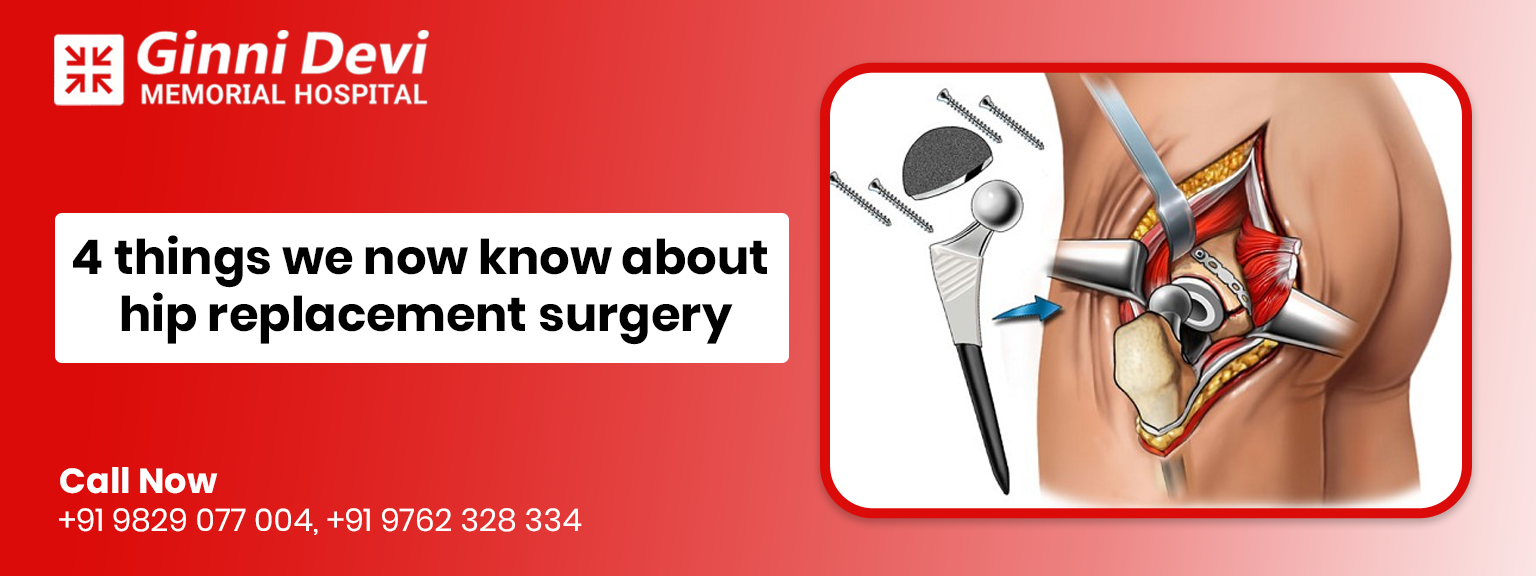Overview
Pain doesn’t just live in the body. It creeps into the mind, the mood, the choices we make. But so does healing.
There was a time when hip replacement surgery was considered frightening, almost like the last card you play when everything else has failed. People whispered about it, postponed it, and sometimes avoided it altogether out of fear. But medicine evolves, and so do people’s stories. Today, this operation is less about fear and more about freedom.
Here are four things:-
Here are four things we’ve come to truly understand about hip replacement surgery, things that might surprise you.
1. Not just for the elderly anymore
For years, surgery on the hip was seen as an old person’s battle. But pain doesn’t care about birthdays.
Younger adults—people in their forties, even thirties—are now saying yes to hip replacement surgery. Why? Injuries, arthritis, or accidents can destroy a joint long before old age arrives. And living half a life, holding back from sports, travel, or even simple walks, feels like no life at all.
- Athletes are worn down by years of strain
- Office workers with degenerative arthritis
- Accident survivors who want their life back
One patient told me, “I thought surgery was the finish line. It turned out to be the starting gun.” That’s the shift happening today.
2. Recovery isn’t the prison people imagine
The biggest fear? That you’ll spend months trapped in bed. The reality is often the opposite. Many people stand shakily but get a grip within 24 to 48 hours after hip replacement surgery.
Modern techniques mean:
- Smaller cuts, less blood loss
- Early physiotherapy, sometimes the very next day
- Confidence rebuilt step by step
And here’s something people don’t always expect: recovery is emotional as much as physical. The first walk down a hospital corridor isn’t just about muscles working again—it’s about trust returning. A whisper from your own body saying, “You’re back.
3. It feels natural, and it lasts
Another old myth: “It will never feel like my hip again.” Today, most patients hardly notice the difference. The implants are built from advanced materials that move smoothly, with almost no friction.
Some joints last 15 to 20 years. Many last longer if you care for them. And unlike in the past, life after surgery doesn’t mean limits. Patients cycle, swim, climb stairs with ease, and some even dance at weddings.
As one doctor once put it: “The real proof of success is when a patient forgets they ever had the operation.
4. The surgeon changes the story
Despite high-tech advances, the success of a hip replacement surgery still depends on a surgeon’s skill. Selecting the Best Hip Replacement Surgeon in Jaipur is entrusting an individual who appreciates every stride of your life ahead. Like leading Ginni Devi Memorial Hospital, doctors don’t just replace joints: they restore dignity, confidence, and the freedom to live pain-free.
The right hospital matters too
Beyond the surgeon, the hospital is where the true journey begins. An Orthopedic Hospital in Jaipur, Ginni Devi Memorial Hospital, offers advanced technology, caring staff, and strong rehabilitation support, making a significant difference. Healing is not just about stitches and scans—it’s about the environment where you’re cared for. The right place feels less like a ward and more like a second home for recovery.
Life after pain: a bigger story
Here’s the part people don’t write about enough. Pain doesn’t just keep you from walking; it keeps you from living. People skip family functions, decline trips, avoid friends, and even stop laughing as much. Chronic pain shrinks the world around you.
After hip replacement surgery, something magical happens. People rediscover the ordinary joys—morning walks, bending to hug a child, joining the dance floor without hesitation. One man said to me, “Before my surgery, I counted every step in fear. Now I count moments in joy.”
This is the hidden gift of surgery. It repairs more than a joint—it restores the soul.
Final Thoughts
So, what do we really know now about hip replacement surgery?
- It’s not just an “old person’s operation.”
- Recovery is faster and kinder than most believe.
- The results feel natural, and the benefits last for years.
- The right surgeon and the right hospital change everything.
At Ginni Devi Memorial Hospital, these truths aren’t theory—they’re lived by real people every day.
And because every heavy topic deserves a smile, let me end with this thought:
A bad hip may slow your steps, but a good replacement will teach you to strut.
In the end, surgery isn’t about replacing what’s broken. It’s about walking forward, stronger, freer, and maybe even with a little swagger.



